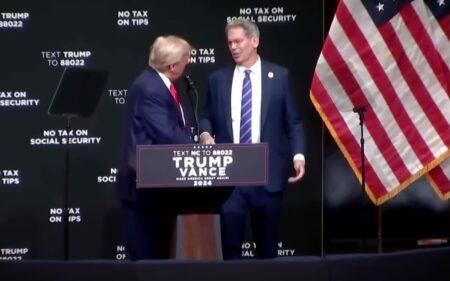Kim Yong-jin, South Korean Deputy Minister of Strategy and Finance, recently noted that the cryptocurrency market and industry is not only beginning to stabilise, but also growing at an exponential rate. The minister’s comments came during a financial conference at InterContinental Seoul. Kim further stated that cryptocurrencies might begin to pose a threat to the global trillion-dollar financial system, which is largely based on the circulation of fiat currencies.
The minister’s exact words were as follows:
“Cryptocurrencies like Bitcoin and Ethereum, which led an investment and speculative bubble earlier this year, have stabilized and are leading both the authorities and investors to question the foundation of the fiat system…the central bank should consider the emergence of alternative payment methods such as cryptocurrencies as a threat to the existence of the traditional fiat system.”
These statements might seem a bit extreme at this point when you consider that the cryptocurrency market has retreated significantly after reaching record-level highs in December 2017. Notably, the market crossed the $800 billion mark, but then fell sharply and currently stands below $400 billion.
Realistic Outlook
The fact of the matter is that crypto-technology has still not matured, and as Ethereum co-founder Vitalik Buterin has said numerous times, these new digital currencies and their underlying blockchain must be drastically improved. This is a more realistic outlook when you consider how many times crypto-exchanges have been hacked and that cryptocurrencies are not exactly user-friendly right now. Furthermore, as Bank of England Governor – Mark Carney – Bank of England Governor – Mark Carney – said recently the cryptocurrency market is simply far too small and relatively insignificant compared to the giant fiat currency market to pose any meaningful threat at this time.
Nevertheless, as most crypto enthusiasts would know, cryptocurrencies are very popular in South Korea. Notably, when the nation’s President Moon Jae-in and his administration moved toward placing a ban on cryptocurrency trading, their approval rating fell by 20%. Crypto analysts believe that this decline in support for the ruling government party could have been due to their “unfriendly” stance on crypto trading.
Severe Backlash
Due to heavy backlash that Moon’s government received from South Korean citizens, they were basically forced to retract their statements and did not go through with the crypto trading ban. Instead, the executive office of the President announced that they would not be banning crypto trading. Moreover, the ruling administration said that they did not want to stifle innovation and would welcome blockchain projects and make sure that South Korea was among the leaders of the Fourth Industrial Revolution.
The South Korean government is not alone when it comes to trying to ban or restrict the activity of their cryptocurrency market. The Reserve Bank of India (RBI) and the State Bank of Pakistan have pressurized national banks to not process cryptocurrency-related transactions. In response, local crypto businesses such as Kali Digital in India have come forward and filed complaints with their country’s court and judicial systems. These notices have alleged that RBI’s ban is unconstitutional.
Strong Resistance from Crypto Community
Clearly, what we see here is that the crypto community will not give in to pressure from centralized authorities and institutions. They will fight back. So, the recent statements from Kim Yong-jin regarding cryptocurrencies threatening the traditional financial system might have some weight behind them in the long-run.
This is also not the first time that members of powerful centralized institutions have voiced concerns about the impact of the cryptocurrency market on their ecosystem. Bank of America has admitted to be being threatened by cryptocurrencies and JPMorgan is also looking more seriously into this new form of digital money, backing projects such as Quorum – a centralized Ethereum.








